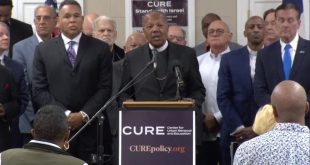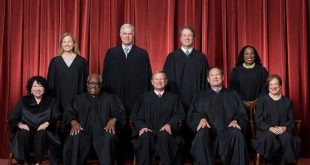South Carolina lawmakers passed a bill to ban abortion if the abortionist detects a heartbeat, and Governor Henry McMaster signed the South Carolina Fetal Heartbeat and Protection from Abortion Act into law in 2021.
An abortionist who killed a baby in the womb in South Carolina after detecting the baby’s heartbeat faced two years in jail and a fine of up to $10,000 — except in cases of rape, incest, or medical emergency. Sources reported that Democrats walked out of the House chamber in protest after the bill passed.
But the state’s highest court struck down the law this week by a 3-2 vote. The court contended that the law violated a provision in the state’s constitution, which, like the U.S. Constitution, does not state or imply a right to privacy to kill unborn babies.
The court held (PDF) that “the decision to terminate a pregnancy rests upon the utmost personal and private considerations imaginable, and implicates a woman’s right to privacy. While this right is not absolute, and must be balanced against the State’s interest in protecting unborn life, this Act, which severely limits—and in many instances completely forecloses—abortion, is an unreasonable restriction upon a woman’s right to privacy and is therefore unconstitutional.”
The court cited this provision in the South Carolina constitution:
The right of the people to be secure in their persons, houses, papers, and effects against unreasonable searches and seizures and unreasonable invasions of privacy shall not be violated.
That’s similar to the federal Constitution’s Fourth Amendment. Three justices on the South Carolina Supreme Court actually believe that the right to privacy against unreasonable searches and seizures also protects a woman’s right to kill her unborn child. The state’s founding document doesn’t even imply that a “right to privacy” includes terminating pregnancies.
The court admits that such an implication doesn’t exist but nevertheless determined that the law, “which severely restricts and, in many cases, prohibits a woman’s decision to terminate a pregnancy” constitutes an “unreasonable invasion of privacy.”
In his dissenting opinion, Justice John W. Kittredge said he interprets the ambiguous phrase “unreasonable invasions of privacy” in the manner “in which its constitutional framers intended it to be read.”
Justice George C. James Jr., the other dissenting judge, made the point that the state constitution’s framers “did not intend to create a full panoply of privacy rights, much less the right to bodily autonomy or the right to have an abortion. Our right under article I, section 10 to be free from ‘unreasonable invasions of privacy’ provides citizens with heightened Fourth Amendment protections, especially protection from law enforcement searches and seizures of communications and information through improper use of electronic devices.”
No framer of any founding document federal or state ever intended “privacy” to mean “killing unborn babies.”
The people’s will is overturned.
“South Carolinians made their will clear when the legislature passed and Governor McMaster signed this compassionate law that would save more than 4,000 lives a year,” SBA Pro-Life America President Marjorie Dannenfelser said. “In the Dobbs era, when the people finally have a voice on this issue again after 50 years, we will not stop fighting alongside our local allies to protect as many unborn children and mothers as possible.”
 CURE News and Clergy Blog News and Commentary for Christians
CURE News and Clergy Blog News and Commentary for Christians



